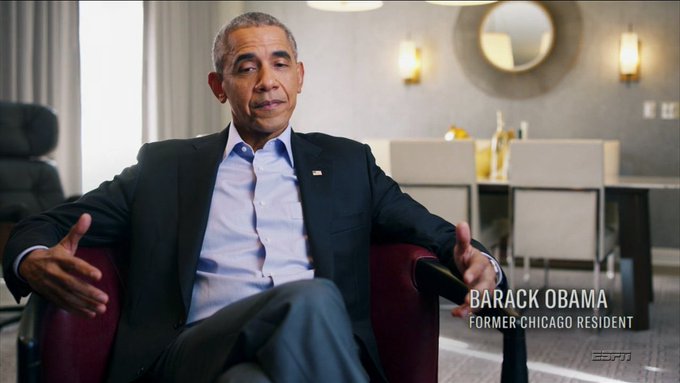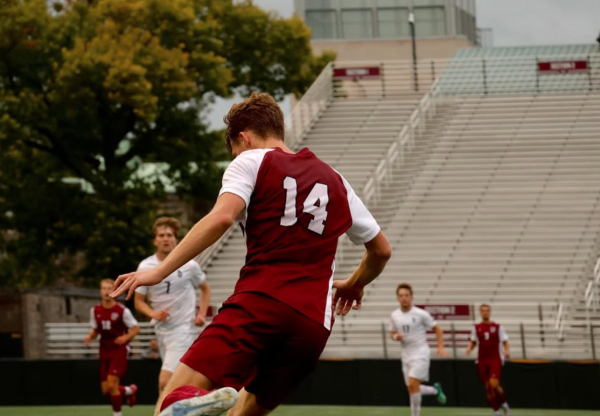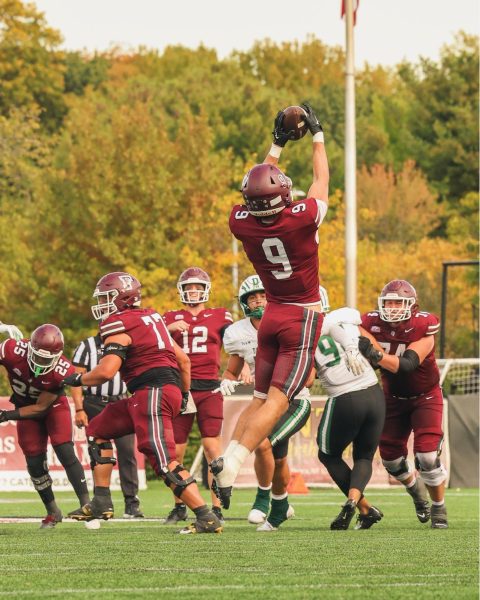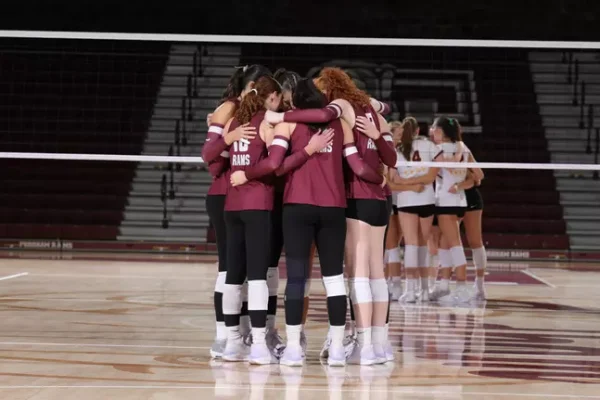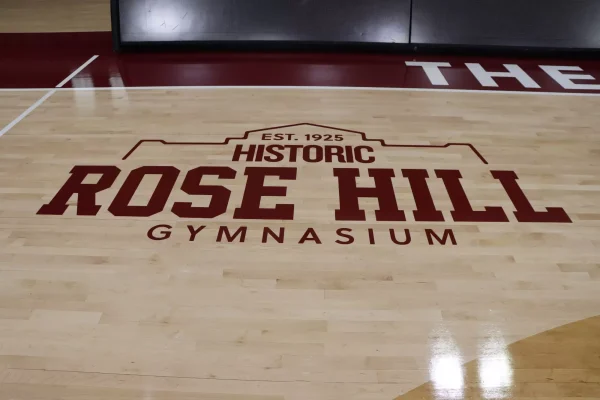The First Two Episodes of “The Last Dance” Establish a Clear Villain… Or Do They?
“That wasn’t Michael Jordan out there; that was God disguised as Michael Jordan.” — Larry Bird
If the first two episodes of “The Last Dance,” ESPN’s 10-part documentary about the 1997-98 Chicago Bulls, will set the tone for the rest of the series, the documentary’s central theme will be winning — at any cost. Within that theme, there will be characters on both sides of the fence: Jordan, the player who was willing to do whatever was necessary to win and earned six championships in doing so, and Bulls general manager Jerry Krause, who thought long and hard about breaking up the Bulls before ultimately bringing back head coach Phil Jackson and the team’s core group of players for one last ride. Then, there was Scottie Pippen, the Robin to Jordan’s Batman, who crossed that picket line a couple of times over the first two episodes on Sunday night.
The first two hours of “The Last Dance” establish the subtext for Chicago’s most difficult title. But this isn’t just a documentary about that season, it’s about everything leading up to the Bulls’ sixth and last championship. Like how an up-and-coming shooting guard from North Carolina went from Mike to Michael with one NCAA-title-winning shot in 1982. Or how Pippen went from an NAIA team manager at Central Arkansas University to one of the best players in the NBA.
With each of the 10 episodes focusing on different aspects of the season, each one will also focus on a central character. Episode one focuses on Jordan and his attempts throughout his rookie year to change the Bulls’ losing ways. Things get so bad that on one road trip, Jordan becomes familiar with something called the “Bulls Traveling Cocaine Circus,” which needs to be printed on a shirt immediately. After winning just 27 games the year before, Chicago makes the playoffs in Jordan’s first season, only to be quickly ousted.
Episode two zeroes in on Pippen, who rises to stardom but at a drastically cheap rate, having accepted a seven-year, $18 million deal right before the NBA took off financially in the ’90s. In a fast forward to the 1997-98 season, Pippen injures his foot and delays surgery until October to thumb his nose at management and, specifically, Krause, who had nearly dealt Pippen over the time. This led to the best quote of the night, with Pippen explaining that despite the injury, he wasn’t going to “f— (his) summer up” by having foot surgery earlier. Pippen’s actions draw rebuke from Jordan, Krause and owner Jerry Reinsdorf, and the tension comes to a head on an early-season road trip to Seattle, where Pippen curses out Krause on a bus ride and later demands a trade, a wish that ultimately goes unrequited.
The Bulls start out the season slowly, going 4-4 in their first eight games and needing double-overtime to defeat the Clippers, who would get the No. 1 pick in the next year’s draft. Despite the bickering between teammates — Jordan is shown berating teammates in practice that season — the common enemy is Krause. Jordan and Pippen can be seen openly mocking Krause, with all of their jokes revolving around Krause being short and fat. He earned credit for building the Bulls’ championship teams but was scorned for his handling of legendary head coach Phil Jackson.
This was never more evident than in his noncommittal attitude towards bringing him back after the ’96-’97 season. Krause was even openly courting Iowa State head coach Tim Floyd to fill the void Jackson hadn’t yet left. Ultimately, Jackson and the Bulls agreed to a one-year deal, and Krause announced — before a single game had been played — that 1997-98 would be Jackson’s last season as the team’s coach. Jackson, perhaps the preeminent master motivator in sports history, called a team meeting and gave that season a theme: “the last dance.” And here we are.
The theme of central characters will continue in parts three and four, set to air next Sunday at 9 p.m. on ESPN. Episode three will focus on Dennis Rodman, while episode four will hone in on Jackson. However, as much as the supporting cast was key to the Bulls’ success — Krause himself said that “organizations, not players, win championships” before the ’97-’98 season — the story of the ’90s Bulls will always center around Jordan, one of the two best players in NBA history. This documentary came about because NBA Entertainment, then headed by current commissioner Adam Silver, reached a deal with Jordan to let a film crew follow the team around for the entire season; the footage would only get out if both sides agreed to let it. Jordan only gave the okay in 2016, and production started two years ago.
As such, with a year’s worth of footage and over 100 interviews conducted, we were bound to get an inside look at Jordan’s psyche, the likes of which we haven’t seen before. One story in particular, towards the end of episode two, tells you much of what you need to know about Jordan.
In 1985, Jordan’s second year in the league, he injured his foot in an early-season game. Further examinations revealed a broken foot, and this likely meant the end of his season before it really got going. Jordan convinced the organization to let him go back to North Carolina and soon enough, he was back on the court, unbeknownst to Krause and Reinsdorf, both of whom would have to sign off on Jordan’s return. Jordan’s doctors said that if he came back before season’s end, he would have a 90% chance of not reinjuring his foot. If the 10% materialized, his career would be over.
The Bulls, for obvious reasons, didn’t want Jordan to play; they didn’t have a good team and could use a bad year to get a high draft pick. Jordan, though, only knew how to do things one way: at the highest level. He didn’t believe in tanking and desperately wanted to come back and lead his team to the playoffs. Eventually, Jordan returned and dropped a combined 112 points in two games against the Celtics in the first round of the playoffs. The Bulls lost both games.
Reinsdorf used this analogy to impress upon Jordan that he shouldn’t play: “If you had a terrible headache, and I gave you a bottle of pills, and nine of the pills would cure you, and one of the pills would kill you, would you take a pill?”
Jordan: “Depends on how bad the f—–’ headache is.”
Other things…
- ESPN aired an uncensored version of the documentary on its main channel and a G-rated version on ESPN2. In a rarity, the network let the f-bombs fly, and the lack of censorship added to the experience, as this humble viewer was never distracted by the bleep sound.
- Two U.S. presidents were interviewed: Barack Obama and Bill Clinton. Obama was listed as “former Chicago resident” and Clinton as “former Arkansas governor.” Whoever wrote those titles gets an A+.
- Another A-grade goes to the film crew for capturing a conversation on the bench from an overseas trip at the start of the 1997-98 season. As the Bulls beat Olympiacos in Paris, a couple of players celebrated on the bench. Jordan admonished them with, “It don’t count.”
- That Olympiacos team featured Arturas Karnisovas, who became the Bulls’ executive vice president of basketball operations last week.
- I feel bad for Jerry Krause. He got continually dunked on in these two episodes and he can’t defend himself; he sadly passed away three years ago.
- Also, Krause was hired by Reinsdorf in 1985 after being a scout for the Chicago White Sox. Huh?
- Krause’s step-daughter got married in the summer of ’97. Floyd, the would-be coach, was invited. Jackson was not. Reinsdorf: “If somebody doesn’t invite me to a wedding, I’d thank them.” Well then.
- Is Jerry Krause the new Carole Baskin?
- Young Bob Costas looks a lot like I do after not seeing my barber for three-and-a-half months.





































































































































































































